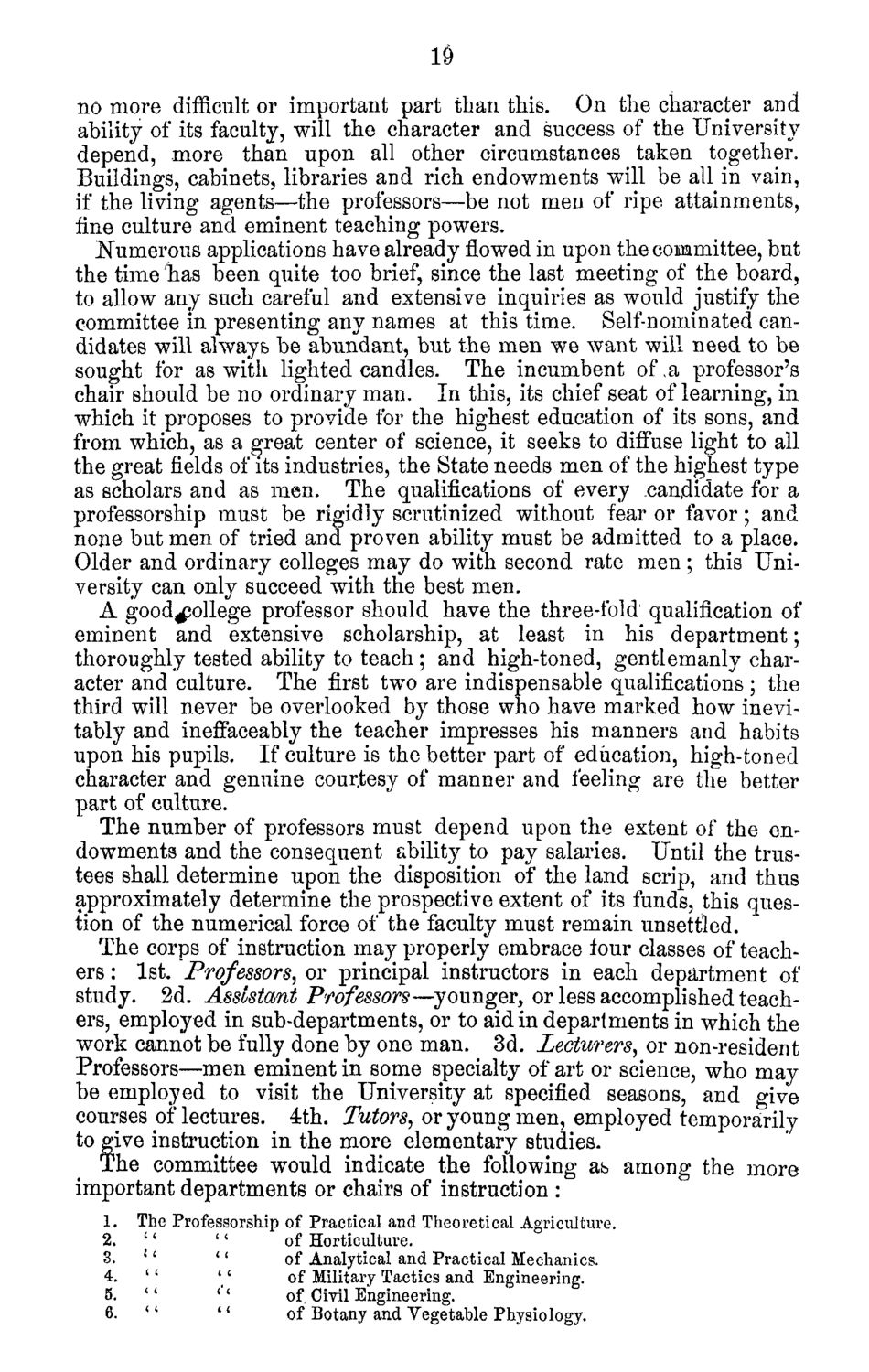| |
| |
Caption: Course Catalog - 1867
This is a reduced-resolution page image for fast online browsing.

EXTRACTED TEXT FROM PAGE:
IS no more difficult or important part than this. On the character and ability of its faculty, will the character and success of the University depend, more than upon all other circumstances taken together. Buildings, cabinets, libraries and rich endowments will be all in vain, if the living agents—the professors—be not meu of ripe attainments, fine culture and eminent teaching powers. Numerous applications have already flowed in upon the committee, but the time has been quite too brief, since the last meeting of the board, to allow any such careful and extensive inquiries as would justify the committee in presenting any names at this time. Self-nominated candidates will always be abundant, but the men we want will need to be sought for as with lighted candles. The incumbent of ,a professor's chair should be no ordinary man. In this, its chief seat of learning, in which it proposes to provide for the highest education of its sons, and from which, as a great center of science, it seeks to diffuse light to all the great fields of its industries, the State needs men of the highest type as scholars and as men. The qualifications of every candidate for a professorship must be rigidly scrutinized without fear or favor; and none but men of tried and proven ability must be admitted to a place. Older and ordinary colleges may do with second rate men ; this University can only succeed with the best men. A good^jollege professor should have the three-fold qualification of eminent and extensive scholarship, at least in his department; thoroughly tested ability to teach; and high-toned, gentlemanly character and culture. The first two are indispensable qualifications ; the third will never be overlooked by those who have marked how inevitably and ineffaceably the teacher impresses his manners and habits upon his pupils. If culture is the better part of education, high-toned character and genuine cour.tesy of manner and feeling are the better part of culture. The number of professors must depend upon the extent of the endowments and the consequent ability to pay salaries. Until the trustees shall determine upon the disposition of the land scrip, and thus approximately determine the prospective extent of its funds, this question of the numerical force of the faculty must remain unsettled. The corps of instruction may properly embrace four classes of teachers : 1st. Professors, or principal instructors in each department of study. 2d. Assistant Professors—younger, or less accomplished teachers, employed in sub-departments, or to aid in departments in which the work cannot be fully done by one man. 3d. lecturers, or non-resident Professors—men eminent in some specialty of art or science, who may be employed to visit the University at specified seasons, and give courses of lectures, ith. Tutors, or young men, employed temporarily to give instruction in the more elementary studies. The committee would indicate the following as among the more important departments or chairs of instruction : 1. The Professorship of Practical and Theoretical Agriculture. 2. of Horticulture. 3. '' of Analytical and Practical Mechanics. 4. '' of Military Tactics and Engineering. 5. '' of Civil Engineering. '' of Botany and Vegetable Physiology.
| |